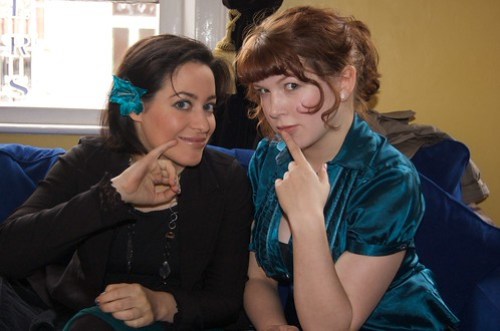
I seem to be a connector…
I have identified there is something in me which gets excited about getting people together. Its almost like my brain releases extra dopamine at the notion of getting people together.
Recently I’ve been made the social committee chair for my flats (islington wharf). Well I kind of made myself it really. But so far we’ve had one drinking meeting and 2 dinners (last friday dining club). The last one was just last Friday and it was good fun for everyone. 12 strangers around a dinner table made for 8 in the northern quarter on Friday night.
On the way back on Friday night, I walked home with Brian and in my slightly drunken (well only really slightly tipsy) state started to talk about my role in the islington wharf community.
I felt my role was as a connector.
When I first moved to London, I knew no one and lived out in deepest south London (Thornton Heath) with my cousins and aunt. After about 2 years while at college at Ravensbourne Design College, I started to get to know more people via my jobs in Central London and of course the college its self. But it wasn’t till about 3 years in London that things really started happening.
I attended in the early days meetups across London and had so-so success with them (best one was when I met Lucas, who I’m still friends with today). Then I attended a few blogger meetups including one where I met lovely people such as Suw Anderson-Charman. Anyway at some point I attended a geekdinner and was intrigued by the simplicity of it. So when I arranged with Tim O’reilly to come to the BBC, it made sense to throw a geekdinner for him too. At that point was my first go at social organization. The rest is pretty much history but you can read a good account of the geekdinners events in over 5 years of blog entries [1][2][3][4].
During the geekdinners I got mixed up with BarCamp via Ben Metcalfe. Once again you can read all about those in blog entries over the years [1][2]. I built a large body of friends who I could go out with almost any time because at least one or so of them would be out doing something at some point during the week.
But then of course I moved to Manchester.
I moved early which meant I didn’t really know many people, in actual fact I only got to know people who had come to previous barcamps I had run. Then I got to know friends of friends, not many but a few. But generally I was alone like I was in London when I first moved there.
Now I feel after almost 4 years in Manchester and its been a struggle I grant you that but I think finally its starting to click…
Theres something in me which kind of thrives on building communities and connecting people.
When I moved in to Islington Wharf, there was a promise of a community and to be fair there was something but I can hardly call it a community. So rather that sit there and moan about it, something in me grabs the opportunity to make things better for myself and everyone else whos not willing to do something about it. My first party which was attended by only a few people but I did knock on every single door on my level and the level above and below. Most people haven’t even knocked on there neighbors door!
Later I arranged a halloween party which was a lot more successful and afterwards kicked off a whole range of parties and friendships. Another idea later was to start a last Friday dining club. Someone elses idea but executed by myself… I’m also flirting with the idea of setting up a cinema club but to be fair I’m putting it on hold since someones already started one. I got a feeling Ben might need some help with it and I’m not certain of the format (but I’ll reserve comment till I go along).
So what is it about me? I just don’t know… But I won’t stop and I’ll be doing what others won’t.







